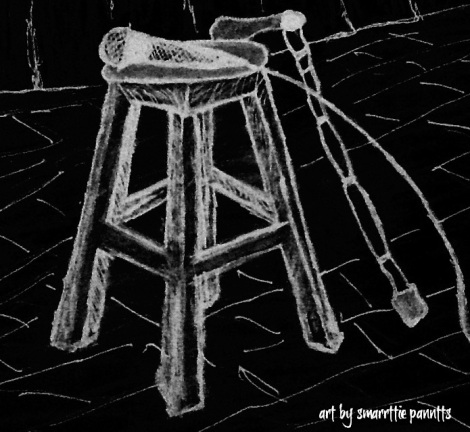In a variation on “From the Stacks,” I have decided to offer you, between now and Christmas, a few of Jonathan’s stories from one of his most popular books:
Mr. Kringle’s Tales: 26 Stories ‘Til Christmas
Mr. Kringle Visits the President
On December 20th, 1862, Abraham Lincoln was sitting in his office alone, deliberating the fate of young men he had sent to a war not of his making. He was interrupted by a knock on the door.
“Is that you, Mr. Hay?” he asked without budging from his chair.
“It is not Mr. Hay.” The voice said no more.
Abraham stood to his feet and creaked toward the door. Opening it, he gazed at a man with a smoky-white beard, stovepipe hat, dressed in the uniform of a colonel in the Union army. “I have two questions for you, Colonel,” said Abe. “Who are you and how did you get past my aide?”
“He became distracted by an urgent personal need which called him to the water closet,” responded the courtly colonel.
“Well, that answers one.”
“For the other answer, I think we should both sit down, sir.”
“I am always of a mind to put more pressure on my backside than my feet,” Mr. Lincoln smiled, motioning to a chair for his guest and heading for one himself.
The distinguished colonel sat, drew a breath, and began. “Mr. President, I am Kris Kringle.”
“Dutch or German?”
“Very.”
“Well, Colonel Kringle, you are honored with a fine name.”
“I am not a colonel.”
“Then you are in danger of being shot for impersonating one. Have you come to assassinate me?”
“Heavens, no. I have come to see you on behalf of the children.”
“Children? Are you a father?”
“Many children, I hope. Some are black.”
“A plantation owner?”
“No. A toyshop.”
“Mr. Kringle, I am not partial to riddles unless they are of my own making.”
“Then let me speak plainly. I am Santa Claus.”
“A little too plainly, dear sir. I must ask you to leave.”
“I know it is hard to believe. But sir, you are a man of great hope and faith. Stretch that belief for a few moments.”
“Speak on. You have until my aide returns to throw you out.”
Kris fidgeted in his chair, not sure what he had expected, but definitely discouraged by this beginning. “I have received words, letters and heard the prayers of black children across the South. They asked me for a Christmas gift — liberty.”
“That is why we are fighting this horrible war. Are you some sort of abolitionist-soothsayer?” Lincoln was perturbed.
“I am what I am, which I declared myself to be. I know you have a proclamation you are about to make law.”
“This is common knowledge.”
“I also know you are reconsidering your decision because people are putting pressure on you to keep slavery out of the issue.”
Abraham sat straighter, cleared his throat, and said, “Go on.”
“Freed children make productive men and women — the kind that build nations.”
“Maybe they would be happier back home in Africa.”
“These children are home. This is their land. They were born here. It is their dream. It is their hope. It is the land where they ask me to come and bring them presents. They are you and you are them.”
Lincoln probed the rotund stranger for a glimmer of sanity. Satisfied, he asked, “Well, Santa Claus, if you are, what should this old President do?”
“Be Santa Claus to a whole race of children. Give them what they deserve this Christmas — freedom. They’ve been good They have suffered quietly. It is time to let them run and play.”
Mr. Lincoln’s eyes welled with tears as he nodded his head. Kris Kringle stood to leave. Empty of words, he headed for the door.
“Mr. Claus,” Lincoln called, “what do I get for Christmas?” Abe’s eyes twinkled in the fading light.
“What do you want?”
“I fancy that stove-pipe hat on your head, dear sir.”
“It is yours.” Kris strolled over and handed it to the President.
“Is it magic?” Lincoln pursued.
“Everything has its moment of magic,” Kris chuckled.
Lincoln smiled. “The children will have their Christmas, Mr. Kringle.” He then turned away and stared out the window as Mr. Kringle vanished.
***
On January 1st, 1863, Abraham Lincoln declared the Emancipation Proclamation to be the law of the land, freeing the slaves.
***
In the spring of 1865, while riding a horse near enemy lines, President Lincoln was shot at by a sniper, the bullet passing cleanly through his stovepipe hat, leaving him unharmed.
Afterward
I wrote this story in 2004 as part of a collection. There are twenty-six stories (hence the title!)
If it intrigues you, go ahead and purchase a copy of the book. It’s on Amazon. Just click the title below.

